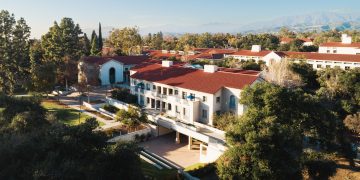What Is a Liberal Arts College? The Pathway to a Well‑Rounded Education
Choosing the right college can feel overwhelming—but understanding the type of school you want is one of the best first steps. You’ve likely heard the term “liberal arts college”. But what does it actually mean?
In short, a liberal arts college focuses on broad‑based, interdisciplinary studies designed to develop critical thinking, communication, and adaptability—skills that serve graduates across careers and over a lifetime.
Quick definition: A liberal arts college is typically a small, undergraduate‑focused institution where students study across the humanities, social sciences, natural sciences, and arts, with an emphasis on close faculty interaction, discussion‑based classes, and writing‑ and research‑intensive learning.
Navigate:
What does “liberal arts” mean?
What is a liberal arts college?
Should I attend a liberal arts college?
Liberal Arts Colleges vs. Research Universities
What can I do with a liberal arts degree?
15 reasons to consider a liberal arts college
Myths, debunked
Conclusion
What Does “Liberal Arts” Mean?
The term liberal arts dates to classical education and historically referred to foundational subjects that shaped informed, engaged citizens. Today it encompasses four broad areas:
- Humanities: literature, languages, history, philosophy
- Social sciences: psychology, sociology, economics, political science
- Natural sciences: biology, chemistry, physics
- Arts: visual and performing arts
A liberal arts curriculum emphasizes interdisciplinary studies—connecting ideas across fields—rather than narrow, early specialization.
What Is a Liberal Arts College?
A liberal arts college is generally a smaller, residential institution that prioritizes undergraduate teaching. Common hallmarks include:
- Small class sizes and high‑contact instruction
- Close faculty mentorship and advising
- Discussion‑based seminars, frequent writing, and original research
- Encouragement to explore multiple disciplines before declaring a major
Many liberal arts colleges also offer strong STEM pathways within this broader educational philosophy. For instance, a biology major may pair lab work with ethics, data science, and communication—graduating with both technical know‑how and versatile problem‑solving skills.
Explore examples: Pomona College • Mount Holyoke College • Eugene Lang College of Liberal Arts
Should You Attend a Liberal Arts College?
Whether a liberal arts college is right for you depends on your goals, learning preferences, and budget. Here are common pros and trade‑offs to weigh:
Advantages
- Personalized learning: high interaction with professors
- Transferable skills: analysis, communication, teamwork, leadership
- Flexibility: room to explore majors and minors
- Community: close‑knit campus culture and engagement
Potential trade‑offs
- Fewer pre‑professional or highly specialized programs compared to large research universities
- Often located in smaller towns; internships may require extra planning
- Sticker price can be higher (be sure to compare net price and aid)
Liberal Arts Colleges vs. Research Universities
| Feature | Liberal Arts College | Research University |
|---|---|---|
| Primary focus | Undergraduate teaching | Research + grad programs |
| Typical class size | Small, seminar‑style | Larger lectures (intro) |
| Curriculum | Broad, interdisciplinary | Earlier specialization |
| Faculty interaction | High mentorship | Varies; research demands |
| Campus feel | Close‑knit/residential | Diverse/urban or large |
What Can You Do With a Liberal Arts Degree?
A liberal arts degree is intentionally versatile. Graduates build careers in:
- Business & management: consulting, HR, project management, sales
- Media & communications: marketing, PR, journalism, UX writing
- Public service & nonprofits: policy, community development, fundraising
- Education: teaching, advising, student affairs
- Law & graduate study: strong preparation for advanced degrees
- Tech‑adjacent roles: product ops, customer success, analytics (often with short upskilling)
Employers consistently value critical thinking skills, writing, collaboration, and the ability to learn quickly—core outcomes of a liberal arts education.
15 Reasons to Consider Attending a Liberal Arts College
- Smaller class sizes and individualized attention
- Faculty who prioritize undergraduate teaching and mentorship
- Broad foundation across disciplines
- Strong emphasis on interdisciplinary studies
- Abundant undergraduate research opportunities
- Writing‑intensive curriculum that sharpens communication
- Deliberate cultivation of critical thinking skills
- Discussion‑based learning and collaboration
- Flexible pathways to explore or change majors
- Leadership development via clubs, labs, and service
- Global awareness and study abroad options
- Supportive, tight‑knit community
- Excellent preparation for graduate or professional school
- Active alumni networks for mentoring and opportunities
- Transferable skills that endure through career shifts
Myths About Liberal Arts Colleges—Debunked
Myth: They’re only for humanities majors.
Reality: Many offer robust programs in biology, computer science, data science, and engineering‑adjacent fields.
Myth: They don’t prepare students for “real” jobs.
Reality: Employers seek adaptable thinkers who write, present, and problem‑solve well—hallmarks of liberal arts grads.
Myth: They’re less rigorous than research universities.
Reality: Top liberal arts colleges are among the most selective and academically demanding institutions in the U.S.
Conclusion: The Value of a Liberal Arts Education
In a fast‑changing job market, the ability to think critically, communicate clearly, and learn new tools quickly never goes out of style. A liberal arts education develops exactly that—while fostering curiosity, civic engagement, and leadership.
Ready to explore? Dive into profiles like Pomona College and Mount Holyoke College to see how each campus brings the liberal arts mission to life.
Reviewed by: Tyson Schritter, COO, on August 12, 2025.




